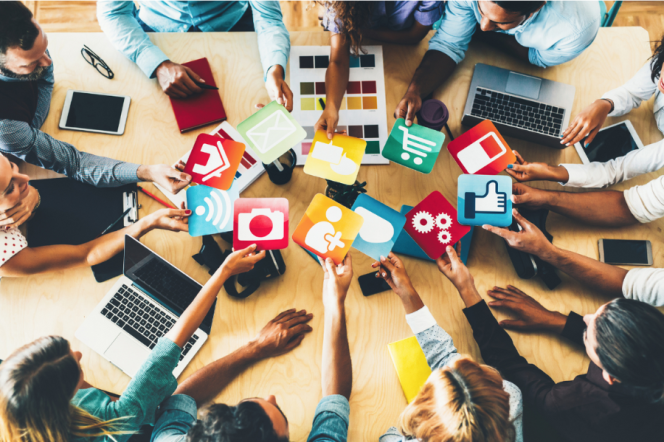Date added: 2025-03-04
Summary of events organized by the International Relations Office as part of the OPEN UP! DARE TO! program

The training on intercultural etiquette allowed us to better understand the impact of cultural differences on everyday interaction in an academic community. We discussed how to avoid misunderstandings, interpret non-verbal communication and how to impact on building positive relationships with foreign doctoral students, students, staff and guests of the university.
The meeting with the Baltic Sea Cultural Centre, on the other hand, concerning mainly the Festival of Cultures ‘Window onto the World’, made us aware of the important part of artistic activities in building intercultural dialogue. Culture and art may foster integration, strengthen the sense of identity and facilitate mutual understanding. The talk and presentation opened us up to new perspectives and made us to think about the role of the University in creating an open and welcoming environment for people from different cultures. Tomasz Lipski from the Baltic Sea Cultural Centre encouraged all with ideas for a project supporting the bringing together of people from different cultures to get in touch.
We also attended a meeting with the Gdansk Centre for Equal Treatment, where extremely important issues were raised about preventing discrimination, which may affect many areas of life - from interpersonal relations to public and digital spheres. We talked about the importance of building public awareness of equal treatment, to react (even anonymously) when we witness violence, as silence strengthens abusers. We learned that anyone in Gdańsk experiencing discrimination, hate or violence could get help from GCRT, which cooperate with a network of Gdansk institutions and a group of ‘tailor-made’ specialists (psychologists, lawyers) who are sensitive to violence-related behaviour. The meeting made us reflect on what actions we could take to actively prevent all forms of unequal treatment in our environment.
Next event was a training on inclusive communication led by Dr Klaudia Bączyk-Lesiuk. During the workshop, we learned about the principles of inclusive language and how to avoid discriminatory phrases and communicate effectively with people from minority groups. Particularly valuable were the practical tips related to implementing inclusivity into everyday communication - both spoken and written. The training helped us realise how language affects reality and how the conscious use of appropriate phrases may help to create a more open academic environment.
The meeting with Paweł Kowalewski from the Emigration Museum in Gdynia allowed us to try to see the Tricity from the perspective of the newcomers and listen to their stories. We thought about the daily challenges faced by migrants and how our society could become more open and welcoming. It was particularly valuable to reflect on the host-guest relationship and how to build mutual understanding and solidarity in a multicultural community.
The last event on the programme was a meeting with Jagoda Ratajczak, philologist, translator and author of the book ' Luka. Jak wstyd i lęk dziurawią nam język ' (free translation: “The Gap. How shame and fear are perforating our language”). We talked about why, even after many years of education, people in Poland are afraid to speak English. We discussed the sources of shame and fear of speaking a foreign language and the role of the education system and social expectations in shaping the relationship with a new language. The meeting encouraged people to build more confidence in communicating in a foreign language and to exercise restraint in judging others, so as not to unconsciously exclude people because of the way they speak.
The events were an experience that we want to use in our daily work by strengthening the openness of the Doctoral School at Gdańsk University of Technology team. We would like to thank the hosts for the inspiring meetings and look forward to more opportunities to learn and share experiences!

